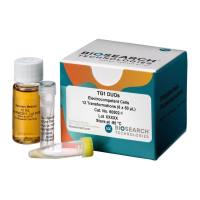Production of Randomly Mutated Plasmid Libraries Using Mutator Strains
互联网
728
A variety of methods have been developed for random mutagenesis of genes and whole plasmids to generate genetic diversity for directed evolution experiments (1 ). In particular, bacterial strains exhibiting unusually high rates of spontaneous DNA mutagenesis, or mutator strains, can be used to generate large, diverse plasmid libraries. Propagation of plasmids within relatively stable mutator strains has been shown to provide a rich spectrum of single base substitutions, insertions, and deletions throughout the entire plasmid (2 ). A significant advantage of using mutator strains to create random libraries is the accessibility of the procedure. Specialized equipment or cloning techniques are not required. Researchers can potentially create a large random library in two or three days, with minimal effort or prior experience in recombinant DNA techniques.









